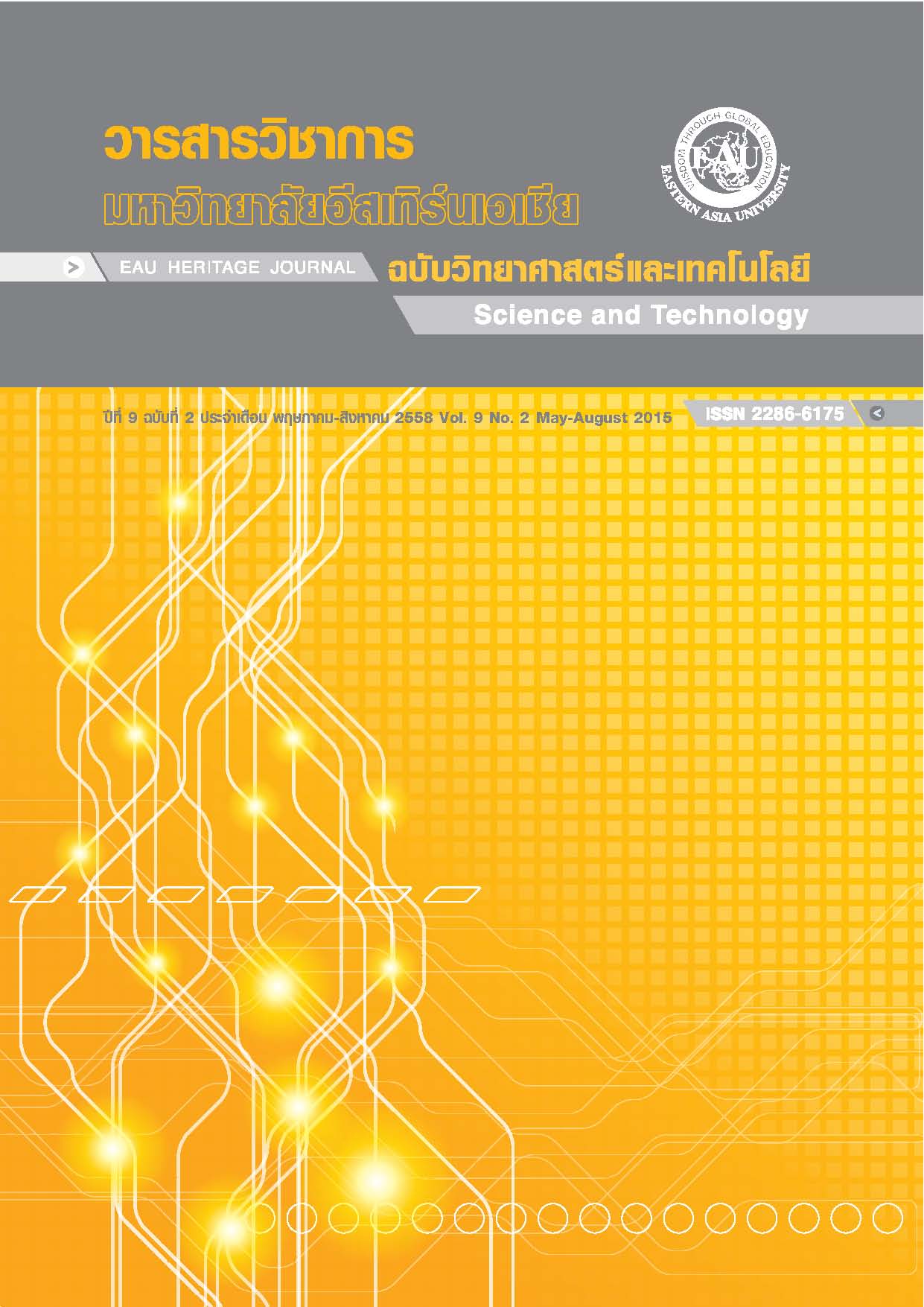Development of Forest Ecosystem Model
คำสำคัญ:
development, forest ecosystem model, primary school studentบทคัดย่อ
The research objectives were to compare the mean score between pretest and posttest of forest ecosystem conservation knowledge, environment awareness and forest ecosystem conservation. The quasi-experimental research was conducted with 30 primary school students of Kudoorprachanuson School, Lumpan Sub-district, Muang District, Kalasin Province in Thailand. The purposive sampling technique was used for sample selection based on criteria of public mind and commitment to participate in the whole research operation. The objectives were to compare the mean scores between pretest and posttest of forest ecosystem conservation knowledge, environmental awareness, environmental attitude, inspiration of environmental conservation, forest ecosystem conservation behavior and to develop model of primary school student to be a trainer for knowledge transferring to others. Three Dimensional Evaluations were applied for determination the participation and Four Dimensional Evaluations were used for trainer role play evaluation. One-way ANOVA was used to analyze the mean scores difference of three and four groups. After Participation-Appreciation-Influence-Control (PAIC) process was implemented, the findings revealed the mean scores of environmental awareness, environmental attitude, inspiration of environmental conservation, forest ecosystem conservation behavior and training achievement were higher than pretest with statistical significance (p < 0.01 for all aspects). In present and future situations, mean scores were different with statistical significance (p < 0.01). Moreover Four Dimensional Evaluations, mean scores were different with statistical significance (p < 0.01).






